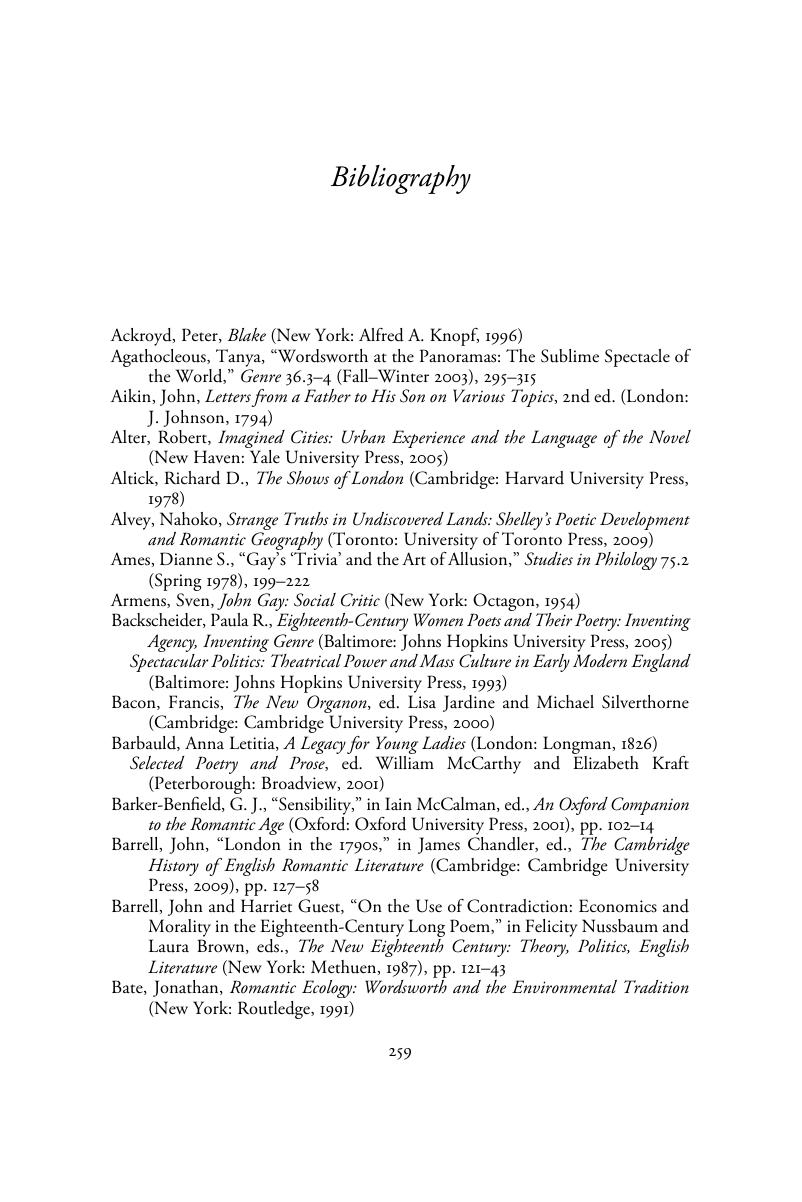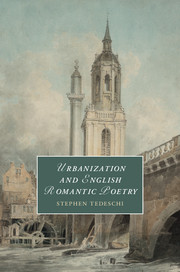Book contents
- Urbanization and English Romantic Poetry
- Cambridge Studies in Romanticism
- Urbanization and English Romantic Poetry
- Copyright page
- Contents
- Acknowledgments
- Introduction Urbanization and English Romantic Poetry
- 1 Urban Ideology in Eighteenth-Century and Romantic Poetry
- 2 Coleridge and the Civilization of Cultivation
- 3 Wordsworth and the Affects of Urbanization
- 4 Shelley and the Political Representation of Urbanization
- 5 Robinson, Barbauld, and the Limits of Luxury
- Conclusion English Romantic Poetry and Urbanization
- Notes
- Bibliography
- Index
- Cambridge Studies in Romanticism
- References
Bibliography
Published online by Cambridge University Press: 06 October 2017
- Urbanization and English Romantic Poetry
- Cambridge Studies in Romanticism
- Urbanization and English Romantic Poetry
- Copyright page
- Contents
- Acknowledgments
- Introduction Urbanization and English Romantic Poetry
- 1 Urban Ideology in Eighteenth-Century and Romantic Poetry
- 2 Coleridge and the Civilization of Cultivation
- 3 Wordsworth and the Affects of Urbanization
- 4 Shelley and the Political Representation of Urbanization
- 5 Robinson, Barbauld, and the Limits of Luxury
- Conclusion English Romantic Poetry and Urbanization
- Notes
- Bibliography
- Index
- Cambridge Studies in Romanticism
- References
Summary

- Type
- Chapter
- Information
- Urbanization and English Romantic Poetry , pp. 216 - 258Publisher: Cambridge University PressPrint publication year: 2017



